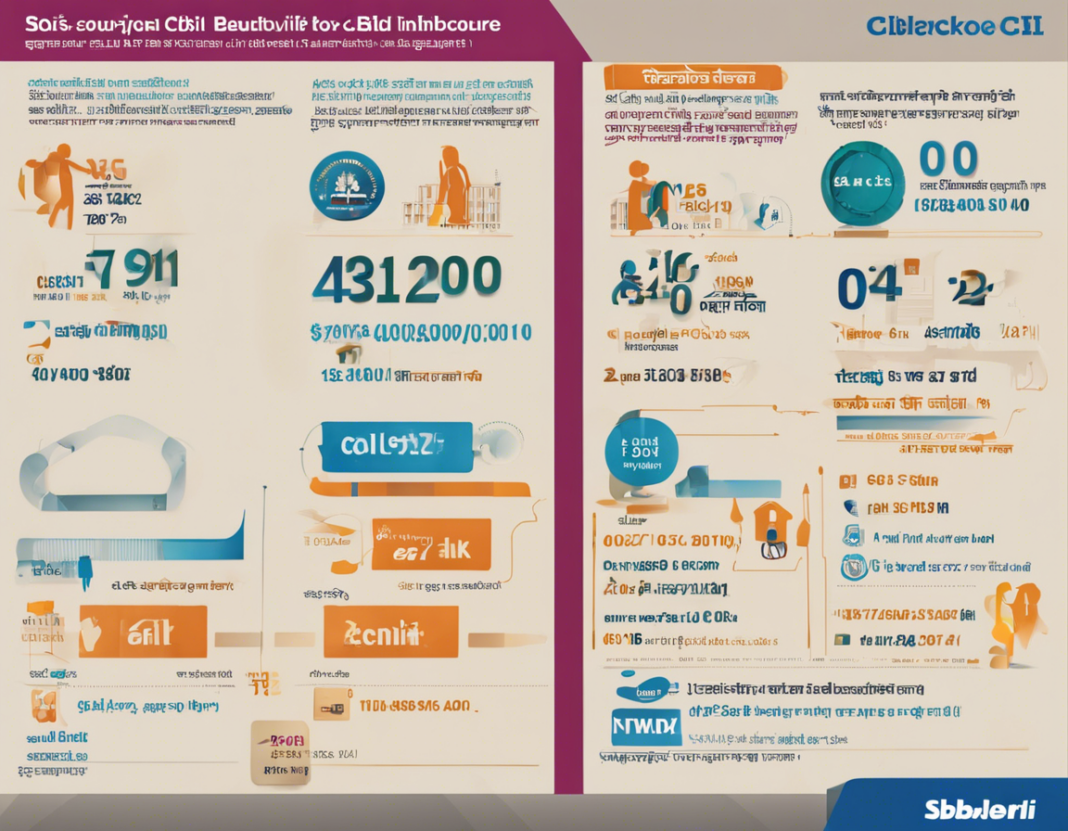Your SBI CIBIL score is a critical element in determining your financial stability. Whether you are applying for a loan, credit card, or any financial product, your CIBIL score plays a crucial role. Let’s delve deeper into what a CIBIL score is, why it is important, how it is calculated, and how you can improve it.
What is a CIBIL Score?
Your CIBIL score is a three-digit number that represents your creditworthiness. It ranges from 300 to 900, with higher scores indicating lower credit risk. Lenders use this score to evaluate your creditworthiness and determine whether to approve your loan or credit application.
Importance of CIBIL Score
Having a good CIBIL score is essential for various reasons:
– Loan Approval: Most lenders require a minimum CIBIL score for approving loans or credit cards.
– Interest Rates: A higher score can help you negotiate lower interest rates.
– Credit Limit: It influences the credit limit you receive on credit cards.
– Financial Health: Reflects your financial discipline and credit management skills.
Factors Affecting CIBIL Score
Several factors impact your CIBIL score:
– Payment History (35%): Timely payments of your credit card bills and EMIs are crucial.
– Credit Utilization (30%): Keeping credit utilization below 30% of the limit is advisable.
– Credit Mix (25%): A healthy mix of secured and unsecured credit impacts your score positively.
– Credit Inquiries (10%): Multiple inquiries in a short period can lower your score.
How is CIBIL Score Calculated?
The CIBIL score is calculated based on your credit history, repayment behavior, outstanding debts, credit inquiries, and other relevant factors. The calculation considers both positive and negative aspects of your credit behavior.
Importance of Regular Credit Report Check
Regularly monitoring your credit report is essential to ensure its accuracy and rectify any errors promptly. Discrepancies in your report can negatively impact your CIBIL score.
Improving Your CIBIL Score
If you have a low CIBIL score, don’t worry; you can take steps to improve it:
– Timely Payments: Pay your bills on time to show financial discipline.
– Reduce Debt: Try to pay off existing debts to lower your credit utilization ratio.
– Limit Credit Applications: Avoid applying for multiple credit products in a short period.
– Monitor Credit Report: Keep a check on your credit report regularly.
Frequently Asked Questions (FAQs):
1. What is a good CIBIL score to have?
A CIBIL score above 750 is considered good and increases your chances of loan approval at favorable terms.
2. How often should I check my CIBIL score?
It is advisable to check your CIBIL score at least once a year to monitor your credit health.
3. Can checking my own CIBIL score affect it?
No, checking your own CIBIL score is considered a soft inquiry and does not impact your score.
4. How long does it take to improve a CIBIL score?
Improving a CIBIL score is a gradual process and may take several months based on your credit behavior.
5. Can errors in my credit report affect my CIBIL score?
Yes, errors in your credit report can negatively impact your CIBIL score. Hence, it’s essential to rectify them promptly.
Understanding your SBI CIBIL score is crucial for maintaining financial stability and access to credit when needed. By managing your finances prudently, making timely payments, and monitoring your credit report regularly, you can ensure a healthy credit score that opens up a world of financial opportunities.

